Why did some French women walk out of work early?
- Published
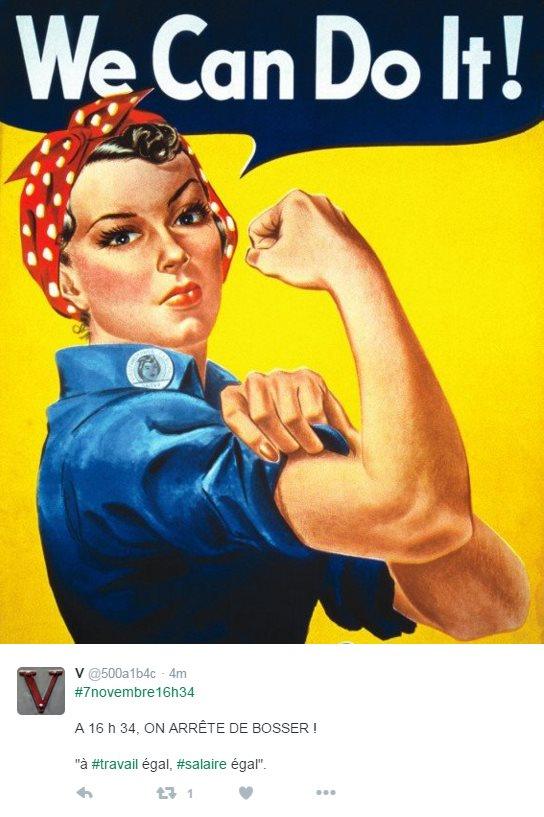
The gender pay gap in France is 15.1%
It seems an insignificant time: 16:34 on Monday 7 November.
And yet, for women across France, it has huge importance: it is the moment they effectively stop being paid for 2016, thanks to the gender pay gap.
And this year, many were determined not to let it go unnoticed.
On Monday, French women were urged to quietly pack their bags and walk out of their offices at the appointed time to unite in their call for equal pay.
In France, the gap between men and women's average hourly wage was 15.1% in 2010, which, feminist group Les Glorieuses calculated, means a woman will work 38.2 days more than a man for the same salary. And that, they say, is not on.
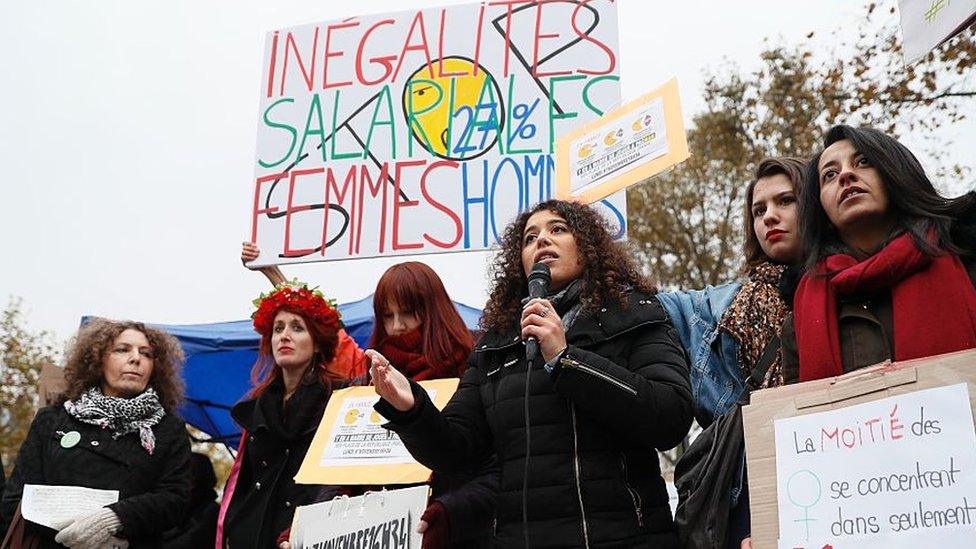
Women convened at the Place de Republique for the Paris chapter of the protest
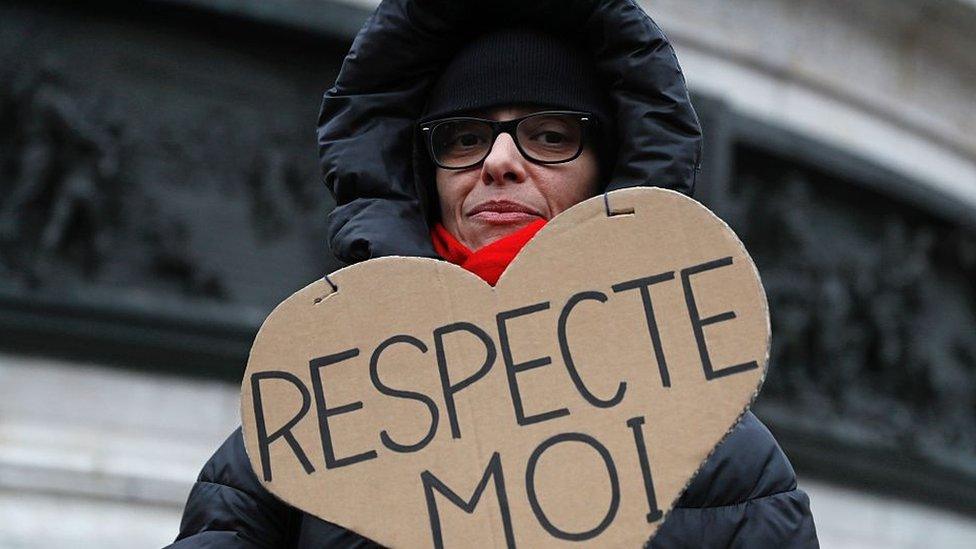
"Respect me" reads the placard of one protester in Paris
Rebecca Amsellem, founder of Les Glorieuses, which launched the campaign, told the BBC: "To be really honest, I knew there was a huge difference between the pay - but I thought the difference would maybe be 10 working days, not a month-and-a-half."
52-year wait
Ms Amsellem had been inspired to do the maths after reading how Iceland, a country considered a world leader in gender equality, still has a pay gap of 14%.
For the last 11 years, women in Iceland have been walking out on 24 October at the time they should leave every day if they were to be paid the same hourly-rate as their male counterparts.
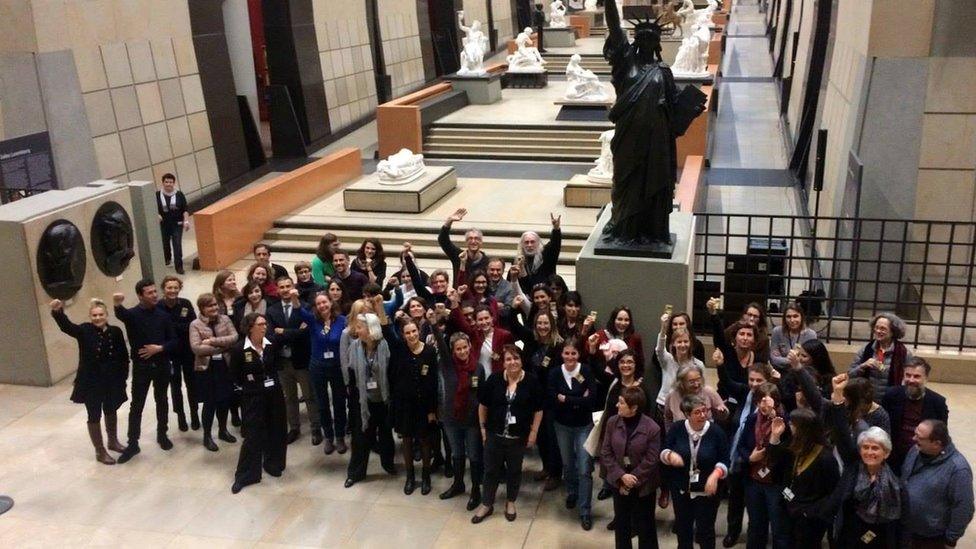
Male and female employees at the renowned Musee d'Orsay in Paris joined the campaign
In that period in the Nordic country, the time has moved from 14:08 to 14:38.
If the pace continues, it will only take another 52 years for them to be able to leave at the same time as men - an unacceptable length of time, according to Gylfi Arnbjörnsson, president of the Icelandic Confederation of Labour.
He told Iceland's national broadcaster: "No-one puts up with waiting 50 years to reach a goal. It doesn't matter whether it's a gender pay gap or any other pay gap.
"It's just unacceptable to say we'll correct this in 50 years. That's a lifetime."
'In 2016, we still need to fight'
In France, it appears a parallel sense of injustice has inspired activists to adopt the symbolism of Iceland's precisely timed protests.
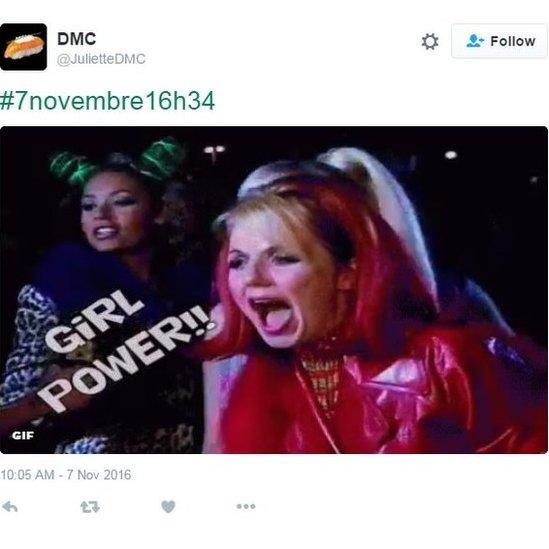
The hashtag "#7novembre16h34" has been trending in France
More than 10,000 women have indicated their interest in joining the movement on Facebook, and the hashtag "7novembre1634" has been trending in France, with hundreds sharing cartoons and memes highlighting the issue. Others write just one word: "Egalite."
The movement even has the backing of two government ministers, and has landed on the front page of a French national newspaper, Liberation.
"Support for the #7novembre16h34 movement: the struggle for equal pay must be by the whole of society," tweeted education minister Najat Belkacem. "Do not wait for 2186!"
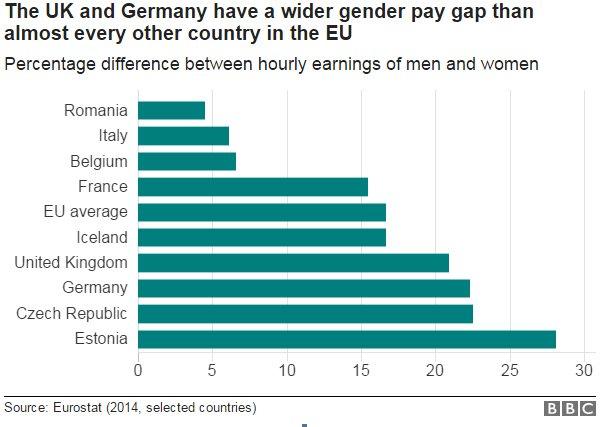
But France is far from the worst offender in Europe when it comes to the gender pay gap.
In neighbouring Germany the gap was 22.3% in 2014, while in the UK it stood at 20.9%, according to Eurostat.
The average pay gap across Europe was 16.7%, with the largest in Estonia, where it was measured at 28.8%.
Whether Iceland and now France will inspire more movements remains to be seen. Ms Amsellem is just happy it has provoked a discussion in her home country.
"What I am happy about is that feminist issues are still burning issues in people's minds," she said.
"But it is crazy to think that in 2016, we still need to fight for these things."
- Published18 October 2016

- Published25 October 2016

- Published21 October 2016
